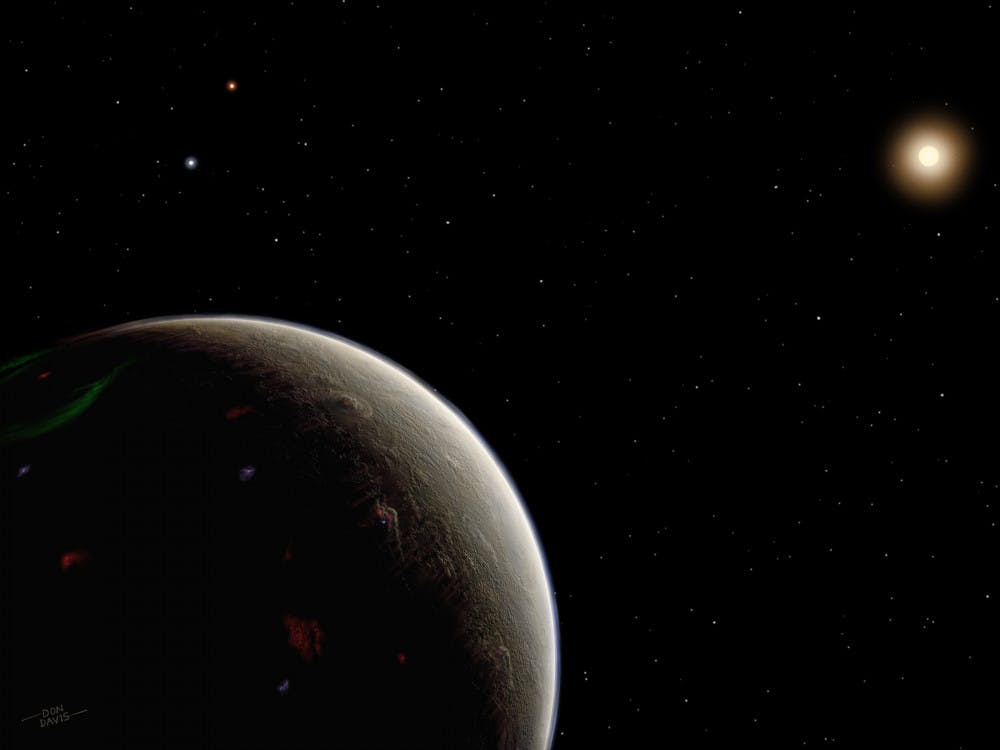Spock’s fictional home planet from Star Trek has been found — by UF researchers.
UF astronomy professor Jian Ge and over 20 other researchers on his team discovered an exoplanet, defined as any planet outside of our solar system, in July. The discovery was published in the Oxford University Press academic journal in the Dharma Planet Survey, a section dedicated to their research.
The exoplanet orbits star 40 Eridani A, which is the same star the planet Vulcan orbits in the 1960s television series Star Trek, according to the show’s creator, Gene Roddenberry.
“It’s very exciting because people always have the imagination, but astronomers discovered it,” Ge said.
As of right now, the exoplanet isn’t called Vulcan yet, but Ge said he has already contacted the International Astronomical Union to attempt to change the planet’s name. The exoplanet is currently being referred to as HD 26965b.
The exoplanet is about twice the size of Earth and located 16 light years away, Ge said. It also is likely to have an atmosphere where water could possibly exist. One side of the planet is exposed to the sun and the other is dark because its tidally locked, which means the time it takes to orbit the sun is the same as it would take to rotate on its axis. He said the dark portion of the planet would be cool enough to possibly support life.
After hearing about the discovery of the exoplanet, Ryan Thomson, a fourth-year UF sociology graduate student, was shocked by how the story wasn’t blowing up on social media. He thought it was one of the coolest coincidences to ever occur.
“I know there’s a lot of other social issues we have on our own planet here,” Thomson said. “But, for that to actually exist and have verifiable evidence, I don’t know it’s almost like foreshadowing.”
It was interesting how Star Trek was able to accurately predict a planet being discovered and existing over forty years before it actually happened, Thomson said.
Sociology and understanding inequalities on this planet are important, Thomson said, but understanding that there is a world beyond us is important as it elevates the level of thinking amongst oneself.
Despite the lack of funding towards space and astronomy programs, these programs are important to have, Thomson said.
“I think it highlights the intersection of how sci-fi and reality are not as estranged as we think.” Thomson said.
Contact Dana Cassidy at dcassidy@alligator.org and follow her on Twitter at @danacassidy_
An art illustration for the exoplanet “Vulcan” by Don Davis. It was discovered in July and orbits the same star as Spock’s home planet in Star Trek.





![Photo of the missing Leachianus “Leachie” gecko. [Photo courtesy of Mike Southwick]](https://snworksceo.imgix.net/ufa/907bd92a-0b29-40eb-a5fb-d7db7cf98b2f.sized-1000x1000.jpg?w=1500&ar=16%3A9&fit=crop&crop=faces&facepad=3&auto=format)
